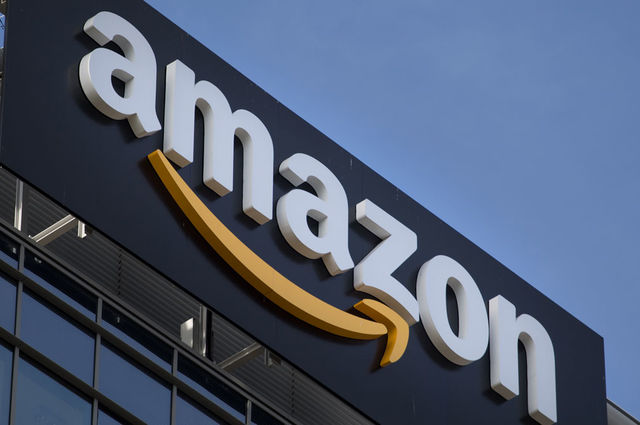Is Amazon the 'elephant in the (hotel) room'?
9 experts shared their view
The Amazon / ClearTrip partnership is far from a revolution, but it's another tiny step Bezos' company took into the travel space. I think the time has come to address the elephant in the room: acquisitions. Rather than building from the ground up and launching its own products (remember the 2014' AMZ Travel fiasco?), in fact, the company now seems to prefer a different approach, partnership with existing providers. So why not acquiring them tout court? It's intriguing to speculate on who can be on Bezos' radar: trivago? Cheap but, honestly, what would be the added value? TripAdvisor? Mew. My two cents are on Expedia. Most of the OTA's infrastructures are already in AWS anyway, and -even though expensive- that's an investment Amazon can undoubtedly support. According to analyst Brian Nowak, our industry has -so far- "proven to be immune" from the e-commerce giant but, he continues, the annual profit figure of Amazon Travel could be estimated in over half a billion dollars. Juicy.
How and when will Amazon enter the travel industry? Glad you asked. It will not be for the love of travel as much as the complementary and strategic value to further expand the core Amazon business model. HospitalityNet published my analysis of this topic HospitalityNet published my analysis of this topic and to summarize:
It's a Chess Match
Like a chess match, Amazon has made several moves in the travel vertical. When Amazon makes the acquisition of Airbnb, it will not be entering it for the love of travel but for around the edges of the travel industry is a treasure trove of opportunity for this retail giant. Reframe your thinking and you will see that travel acquisition is simply a by-product of Amazon's true strategy at hand.
Queen's Pawn to D5: Amazon and Airbnb are complementary and additive businesses
For Airbnb hosts, the platform is a revenue tracking system and for Amazon the platform is an expense tracking system. Combined you have a P&L to run the financials of the business.
King's Pawn to E6: Key placements of key people
In the past year, two key people from Amazon's executive team have migrated to Airbnb. Airbnb Plus roll out curates homes to hotel quality status. The team that brought us Amazon Prime will now drive Airbnb Plus. That is a lot of dish soap.
Bishop to D6: With Airbnb, Amazon now has the hotel relationships
Airbnb is in the process of slowly opening up the platform for hotel brands to access. Amazon will now own the hotel relationships and even bid access to the $5 billion hotel procurement segment.
Queen to H4: Amazon owns the data
Amazon becomes the owner of all the data. By bridging inventory and supply chain controls with an elaborate distribution system and sophisticated data processing platform, Amazon sits in the center of a data hub to manage, predict, and price yield.
Bishop to G3: Amazon has the search volume and the ad platform
While customers may not think of Amazon as a travel site, this concern can easily be overcome with the right execution of the Airbnb acquisition. Amazon can swiftly become a significant travel search and ad platform within the Amazon eco-system.
Check Mate: Convenience is the new currency - game over Amazon wins
Convenience is the new currency and both Airbnb and Amazon exemplify this. Travel is emotional and Airbnb allows us to craft a dream that is unique and with global appeal all with one click to book and via voice.
Speculating about a significant entrance of Amazon in travel it's the gossip of the year, but some real points can be analysed. Amazon is quite active in the travel space already. In 2017 they hired as head of travel business dev. of AWS, my acquaintance Mr Morin which previously was one of the top persons of Google in travel products such as Flight and Hotel Ads. He comes from Ita Software (acquired by Google in 2010) which tells a lot about the kernel technical approach that a leader like this can bring to a company.
It could be a consequence of the fact that in 2014 - 2015, Amazon lightly scraped itself in the attempt to sell hotel products via local prepaid vouchers. They probably realised that contracting (one by one) and distributing massive hotel inventory at 15% commission is pretty tough kind of e-commerce. Nowadays, Amazon has significant partnerships with major chains regarding their Alexa for Hospitality. Their voice assistant has a hotel version used by most prestigious brands.
Apart from its flights reselling white-label site in India, Amazon has more core travel-tech running under the hood. The Alexa AI massive presence and its power to suggest (inspiration sounds like experiences to me) could be a considerable advantage in the b2c travel sales funnel. Aws, the web services farm of Amazon, hosts thousands of travel companies core technology. Most of these are in the aviation sector, including partnerships with Iata, but also among OTAs like Expedia. In hospitality with players such as Choice Hotels, to cite few names that mention Amazon Web Services in their press releases.
Aws Travel is a scalable and affordable resource also for startups. Hopper to quote a very big one or our new project Profiter.ai to say a newcomer. Despite all this guessing, a prestigious investors analysis by CB Insights named "The 7 Industries Amazon Could Disrupt Next" explores all the possible scenarios deeply, for next years and travel it's not there.
Based on past behaviour, Amazon making acquisitions in the travel space is highly unlikely. Instead, it will do what it always does, initially partnering and then ultimately replacing the major players in the sector it wishes to attack. If history (e.g. Borders, Pets.com, Toys'R'Usand many more) is any guide, anyone who chooses to partner with the e-commerce giant will ultimately be replaced, praying mantis style, with an Amazon-branded version of their supposedly value adding service.
Those who operate exclusively in the virtual space, in particular, the meta-search engines, are most at risk. With, thanks to its addictive Prime service, Amazon's customer acquisition cost rapidly approaching zero, no one in the online travel space is well positioned to be able to compete when (not if) the company decides to get serious about travel. So why bother purchasing and trying to integrate travel companies when instead you can slowly bleed them to death?
A study by OAG revealed that 44% of travelers would gladly book on Amazon. However, after the local.amazon.com experiment, Bezos' company stayed relatively quiet in the industry. At least on the surface: amongst other things, it signed an agreement with Meliá Hotels International, closed a deal with ClearTrip, and led a $500M funding round for Deliveroo. The trend seems pretty clear: AMZ is slowly dropping the idea to create a proprietary ecosystem, preferring to partner, invest or buy other companies. Now the question is: which one(s)?
1. Expedia stock value dropped from over $150 to $110 in one year and, with 1:14 stock ratio, the acquisition would give Bezos the technology and know-how necessary to compete with Google.
2. Trivago is another possible, inexpensive, choice: last June, the German metasearch engine was worth over three times its current value.
3. TripAdvisor may have found a new youth with the new feed-based design, but it is still worth half of what it used to be 4 years ago and could be another easy pick.All those investments would be possible for a company with a capitalization of >$1,000B. Moreover, don't forget that AMZ recently opened (and, suddenly, closed) a position for a Head of Marketing Hospitality and Travel "to develop, lead, and execute AWS' global marketing strategy", revealing its interest in the industry.
This is not the first time Amazon has tried to tackle the online travel space. Back in 2013-2015, Amazon attempted to do this “organically” twice with its ill-conceived Amazon Local and Amazon Destinations.
Today some hoteliers would welcome another OTA player like Amazon to increase competition and lessen dependency on the OTA duopoly. Others would be fearful that a giant online player such as Amazon, with its reputation for customer obsession and 100 million Prime members and unsurpassed online retailing capabilities, would further erode the direct booking channel and hoteliers' “ownership” of the customer.
Overall, hoteliers should NOT be concerned by an organic entry of Amazon into the online travel space. It would take Amazon unsurmountable investments and time to build from scratch an organic OTA tech platform, secure global inventory supply, build industry expertise and relationships, and insert itself as a booking channel in the digital customer journey.
However, hoteliers should be really concerned if Amazon decides to buy an existing OTA player and creates a global online travel empire. Ex. Expedia could be one such acquisition target. In today's world, with $18.6 billion market cap, Expedia is “small potatoes” of an acquisition target for Amazon and its $924 billion market cap.
Amazon knows better than any other player how to sell online. By integrating its retail offerings into Expedia's fabric, Amazon could change online travel and consumer experience forever.
Time to short your shorts of Expedia or Priceline? For those old farts out there (like me) who remember the 'poo poo' attitude of hoteliers when the OTAs first appeared, Amazon's entry is (or will be) monumental. Amazon has killed traditional retail, just walk through the streets of your locality and see all the storefronts that are now services: nail salons, dentists, architects, dance studios, etc. Now think of the OTAs being gutted in the exact same way. Amazon is a gifted, brilliant competitor in the web space. If they put their mind to it, they'll conquer all.
When almost every hospitality and tourism company is trying to get “bigger” through acquisition or partnership, why shouldn't or can't Amazon get into the market by acquiring or partnering with the existing players? Amazon may also find it an excellent time to buy when OTAs are experiencing some difficulties in negotiating new contracts with hotels.
Amazon can become more than just another OTA in the market, however. Being one of the biggest e-commerce sites, Amazon has already had in-depth business insights about consumer behaviors. The gaining popularity of Amazon's Alexa in hotels would further allow the company to collect and analyze more valuable consumer data that are specific to their hotel stays or a trip. The business intelligence Amazon has about travelers' behaviors will enable the company to compete directly with the existing players in the market. So, Amazon may still gain good competitive advantages in the market even as a late entrant.
Another example is while it may sound odd when Amazon is going to end its restaurant delivery service, the company wants to focus on fresh-food delivery with Whole Foods instead. If the company find efficient ways to tackle the challenges of delivering fresh food, it can get back to the restaurant food-delivery business soon.
I guess the question now is which area will this elephant wants to get into first. What do you think?
At the heart of it all, big tech has the funds to largely do whatever they would like to do when it comes to industry entry or disruption. Why not Amazon? They have as much funding as many of the others and they know how to sell products.
Although I still make the comparison between the capabilities of an Amazon vs. those company's that have something bigger than a selling platform - a search engine and associated business platforms and operating systems. Not to mention an integrated environment by design.
Why? Because these are the tools that allow such an organisation to know far more about customer behaviour than the final sales transaction.
Eventually this greater customer knowledge will outplay those that can offer a transaction engine for inventory. Anyone selling a major search engine company?
Amazon could buy any of the existing OTA's and distribution style businesses, but that would only replace the existing by name/brand. It will take longer to create an competing integrated environment.
Out of the top five consumer spending categories, travel is the only one which Amazon has not aggressively pursued, so it is only a matter of time before Amazon will make a play in that area. Instead of the OTAs, why not consider AirBnB as an acquisition target? Global scale, hosts and guests are most likely Amazon Prime members already and AirBnB has created an innovative, entrepreneurial, Silicon Valley culture that is a close match to Amazon. Offering AirBnB deals or subscription models to Prime Members would be a great extension, and let's not forget that the person who built Amazon Prime now works at…Airbnb.









